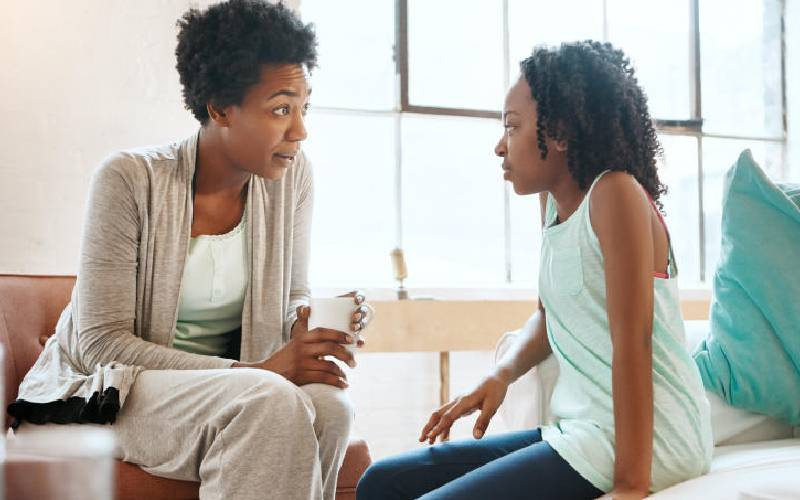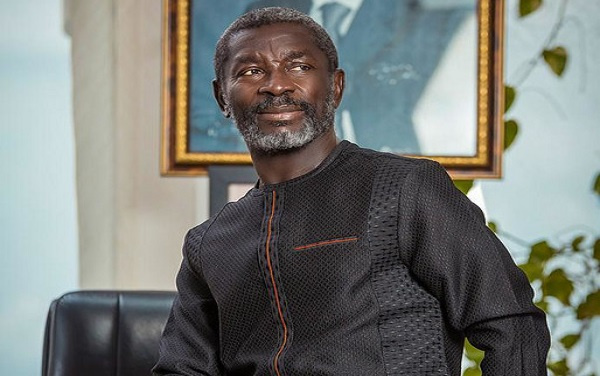Help children understand periods

Mum, am I sick? The question hung in the air like Ngong Hills’ early morning fog. Twelve-year-old Lynet Wanja stood quietly by the door of their one-room house in Gichagi, Ngong, her eyes wide with confusion. Her school dress was tied around her waist; an old hoodie draped over her hips. Her mother, Beatrice Mwaniki, paused mid-stir as she prepared porridge over their single burner. She turned slowly to face her daughter, heart pounding, not with fear, but with a sense of urgency.
The day had come. “No, my sweet girl,” she said gently, wiping her hands on a kitchen towel and beckoning Wanja close. “You are not sick. You’ve just become a woman.”
Beatrice sat down on the edge of the bed and pulled her daughter beside her.
She reached for a brown envelope she had hidden in her cupboard months earlier. Inside were a pack of sanitary pads, two pairs of cotton panties, and a handwritten note that read: “You are strong. You are growing. You are normal.”
“It’s called a period. Every girl gets it,” she began. “It might feel strange, but it’s part of life. Let me explain.” In that moment Beatrice broke the cycle of silence she had inherited from her mother, who had merely handed her a piece of cloth and whispered: “Do not talk to anyone about this.”
In a small village near Kapenguria, 14-year-old Lilian Pkutor, remembers her first period. It happened at school. A red stain on her uniform led to giggles, whispers, and then, crushing silence.
“I ran home crying,” she recalls. “I thought I had done something wrong.”
Her mother, Mpurkel Pkutor, handed her a folded lesso and said, “Avoid playing with boys now.” That was the full lesson.
“I didn’t know what was happening to me. I felt dirty,” Lilian says. “Now, I talk to my younger sister about it openly. I don’t want her to be caught off guard.”
Fathers breaking the silence
Traditionally, the topic of menstruation was considered off-limits for men. But that is changing, one conversation at a time.
James Oduor, a boda boda rider and father of three, is helping rewrite the script.
“I may not be a woman, but I’m a parent,” he says. “Why should I act like my daughter’s body is a mystery?”
James remembers the day his daughter Achieng’ came to him, tearfully describing pain in her lower abdomen.
“She didn’t want to talk to her mother. She came to me. I told her: ‘Your body is growing, and that pain means your period might be on the way.” We sat and watched a YouTube video together in Kiswahili about menstrual health. I even explained how to use a pad,” he says.
What about boys?
“Let them learn, too,” says James
At a mixed secondary school in Mathare, teacher Janice Jillo has introduced a radical policy: both boys and girls attend reproductive health lessons together. “It has changed everything,” she says.
Expert advice: Start early, Speak Clearly
Dr Mercy Osewe, a reproductive health educator, says the earlier the conversation starts, the better. “Children as young as eight begin asking questions. That’s the right time to start, not when they’re already scared or ashamed,” she says.
Osewe encourages parents to use correct terminology and to explain menstruation as part of growing up, not as a disease, curse, or ‘womanhood burden’.
“Say things like: ‘This is something your body does every month. It’s normal. If you have questions, I’m here.’ It builds trust.”
She also emphasises including boys: “When boys understand, they stop shaming. They become supporters. That is how we build a more respectful generation.”
The silence around periods is often rooted in deep-seated cultural discomfort passed down through generations.
Mary Naliaka, a house help in Nairobi’s Kawangware, recalls her introduction to periods.
“My mother gave me a folded cloth and said, ‘You are not a child anymore. Don’t talk about it to anyone,” she says, her voice quiet.
Now raising two girls, Mary is doing things differently, despite her discomfort. “I bought pads and sat my eldest down. I was shy at first. But I told her, ‘This is nothing to hide. Ask me anything.’ I want her to feel proud, not ashamed.”
Tyrus Patet, a social worker at a refugee camp, says that for parents facing the harsh reality of scarcity, talking to their daughters about menstruation is a challenge.
“Even such parents want to talk to their daughters about periods, but they find it difficult to do so, when they cannot afford to buy pads for them.”
Back in Gichagi, Ngong, Wanja has transformed from fearful to fearless. “I carry an extra pad in my bag for my friend who sometimes forgets,” she says proudly. Beatrice, her mother, looks on with quiet satisfaction.








